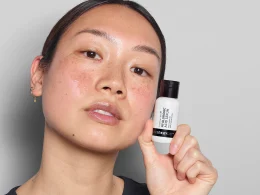Cysteamine stands out for hyperpigmentation due to its specific mechanism of action and potential benefits compared to other antioxidants. Here are some factors that make cysteamine unique:
1. Inhibition of Melanin Production: Cysteamine specifically targets the production of melanin, the pigment responsible for hyperpigmentation. It works by inhibiting the activity of tyrosinase, the enzyme involved in melanin synthesis. By reducing melanin production, cysteamine helps fade dark spots and even out skin tone.
2. Direct Action on Melanocytes: Unlike some other antioxidants, cysteamine directly targets melanocytes—the cells responsible for producing melanin. By inhibiting melanin synthesis at its source, cysteamine can effectively address hyperpigmentation.
3. Non-Hydroquinone Option: Hydroquinone is a commonly used ingredient for treating hyperpigmentation, but it may have potential side effects and is regulated in certain countries. Cysteamine provides an alternative for individuals seeking a non-hydroquinone option to address their dark spots.
4. Promising Clinical Results: Clinical studies have demonstrated the effectiveness of cysteamine in reducing hyperpigmentation. Research has shown significant improvements in conditions like melasma when using cysteamine-based treatments. This scientific evidence supports the use of cysteamine for hyperpigmentation.
5. Well-Tolerated: Cysteamine is generally well-tolerated by most individuals when used as directed. It has shown a lower risk of side effects compared to some other topical treatments for hyperpigmentation. However, individual sensitivities can vary, and it is still advisable to perform a patch test and consult with a dermatologist before use.
It’s important to note that while cysteamine has shown promise in addressing hyperpigmentation, the specific formulation and concentration of cysteamine in different products can affect its efficacy. Additionally, everyone’s skin is unique, and individual responses to treatments may vary.
When considering any treatment for hyperpigmentation, it is recommended to consult with a dermatologist. They can evaluate your specific condition, provide personalized recommendations, and guide you in choosing the most suitable treatment option based on your skin type and concerns.
Overall, cysteamine’s targeted action on melanin synthesis, potential as a non-hydroquinone option, and promising clinical results make it stand out as a unique and effective ingredient for addressing hyperpigmentation.











